Durga Puja Economy Hit by 20-30% in Bengal
By Bishaswar Malakar, Kolkata Oct 10, 2024 18:29
West Bengal's Durga Puja economy is projected to decline by 20-30% due to the R G Kar hospital incident and a general downturn in consumer confidence. The event has impacted various sectors, including retail, hospitality, and handicrafts.
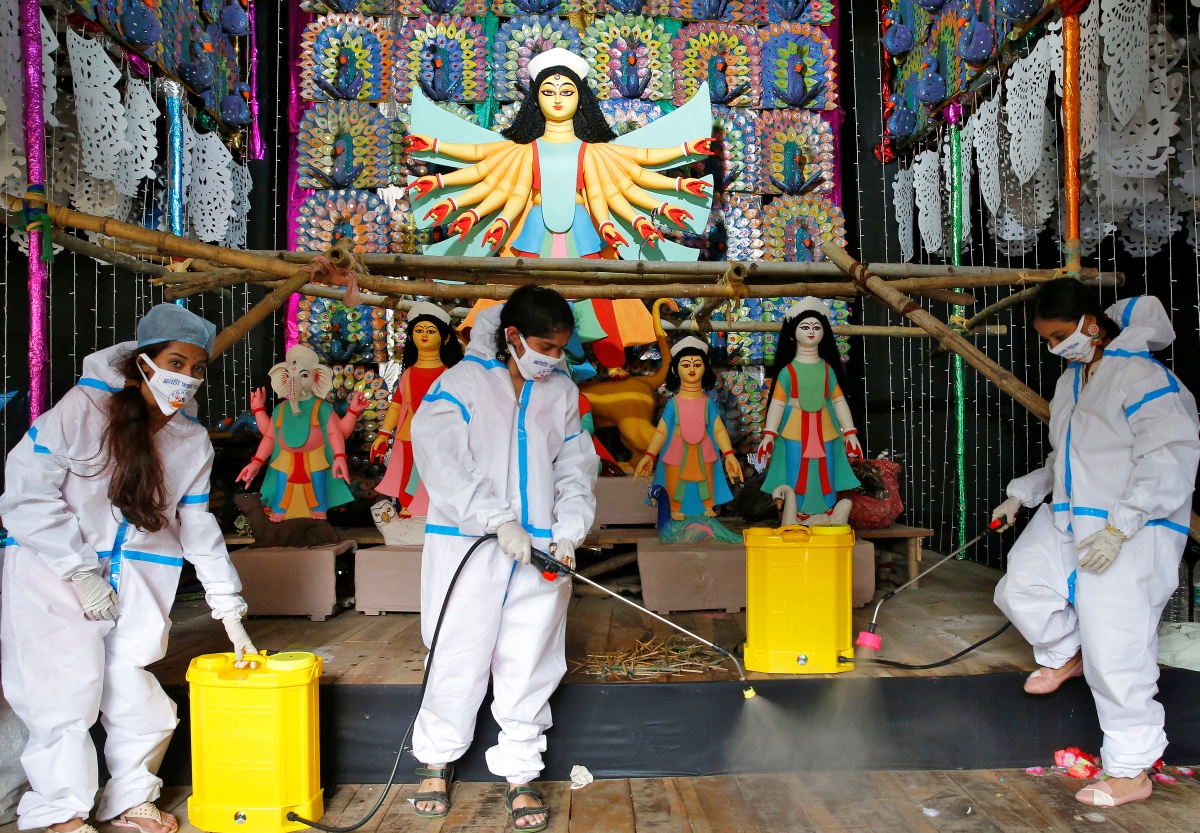
Photograph: Rupak De Chowdhuri/Reuters
Kolkata, Oct 10 (PTI) West Bengal, renowned for its vibrant Durga Puja festivities, finds itself in a shadow of grief this year following incidents like the alleged rape and murder in RG Kar hospital.
The festival, a cornerstone of the state's economy and a symbol of community spirit, is projected to experience a staggering 20-30 per cent decline in economic impact compared to last year.
This downturn is largely attributed to the R G Kar hospital rape-murder incident, which has cast a pall over the entire state, stifling the joyful exuberance that typically accompanies this celebration.
The festival is a major economic driver, contributing at least a third of the state's GDP. It influences various sectors, including retail, hospitality, and handicrafts.
Economists and industry experts point to a combination of issues contributing to the subdued sentiment.
The R G Kar incident sparked widespread protests and outrage, creating a pervasive sense of unease. Additionally, governance concerns, including allegations of corruption, and other issues have further dampened consumer confidence.
"The wind has been taken away. This year, the puja economy is far from rosy and an impact is evident. People are depressed due to governance issues and widespread corruption across sectors. Income wage increases are relatively low, compounded by a lack of industrialisation in the state," said economist Suman K Mukherjee.
Corporate spending, a crucial component of the Durga Puja economy, has also declined.
"This year, corporate sponsorship spending is down by 30 per cent across the board," said Kajal Sarkar, president of the Forum for Durgotsav, an association of durga puja organisers.
Bengal is home to over 40,000 pujas, and this reduction in spending particularly impacts small Durga Puja organisers.
"The R G Kar incident has significantly affected the marketing landscape. Brand managers are exercising caution, resulting in controlled spending," Bidyut Nath, head of digital marketing and branding at Rupa told PTI giving an industry perspective.
He acknowledged that on-ground activities for brands have diminished in light of the recent tragic events.
The retail sector, typically buoyant during Durga Puja, has also seen a downturn.
"While there has been some recovery, it cannot fully offset the damage done. Restaurants are seeing crowds, but the sentiment from the R G Kar incident still lingers," said Sanjeev Mehra, VP of Quest Mall.
In rural Bengal, the situation mirrors that of urban areas.
According to the West Bengal Garments Manufacturers Association, "Sales are down by 30-40 per cent in districts like Murshidabad, Medinipur, and Hooghly due to subdued sentiments. However, this is not solely due to the R G Kar protests, which have a less impact on smaller town markets compared to Kolkata, where congestion from protests has hindered shopping," explained secretary Devendra Kumar Baid.
Baid noted that inflation is also a significant concern for residents, who struggle to purchase clothing after meeting essential food expenses.
The hawker community, crucial to the Durga Puja economy, has also been adversely affected.
"While conditions have improved somewhat recently as protest intensity has subsided, we still face a shortfall of 20-30 per cent in business," said Shaktiman Ghosh, general secretary of the Hawker Struggle Committee.
The government has attempted to stimulate the economy during the festive season by sponsoring a shopping festival and organizing the Bengal Shopping Festival Expo. However, these initiatives have not fully mitigated the adverse effects of the R G Kar incident and other economic challenges.
In contrast, the e-commerce sector appears to have benefited from the situation.
Flipkart reported positive responses from districts outside Kolkata during their annual shopping festival.
A senior finance department official acknowledged the sluggish economic activity this Durga Puja, citing decreased consumer sentiment and spending capacity among the middle and lower middle classes, which is expected to impact the state's GST collection growth rate.
The festival, a cornerstone of the state's economy and a symbol of community spirit, is projected to experience a staggering 20-30 per cent decline in economic impact compared to last year.
This downturn is largely attributed to the R G Kar hospital rape-murder incident, which has cast a pall over the entire state, stifling the joyful exuberance that typically accompanies this celebration.
The festival is a major economic driver, contributing at least a third of the state's GDP. It influences various sectors, including retail, hospitality, and handicrafts.
Economists and industry experts point to a combination of issues contributing to the subdued sentiment.
The R G Kar incident sparked widespread protests and outrage, creating a pervasive sense of unease. Additionally, governance concerns, including allegations of corruption, and other issues have further dampened consumer confidence.
"The wind has been taken away. This year, the puja economy is far from rosy and an impact is evident. People are depressed due to governance issues and widespread corruption across sectors. Income wage increases are relatively low, compounded by a lack of industrialisation in the state," said economist Suman K Mukherjee.
Corporate spending, a crucial component of the Durga Puja economy, has also declined.
"This year, corporate sponsorship spending is down by 30 per cent across the board," said Kajal Sarkar, president of the Forum for Durgotsav, an association of durga puja organisers.
Bengal is home to over 40,000 pujas, and this reduction in spending particularly impacts small Durga Puja organisers.
"The R G Kar incident has significantly affected the marketing landscape. Brand managers are exercising caution, resulting in controlled spending," Bidyut Nath, head of digital marketing and branding at Rupa told PTI giving an industry perspective.
He acknowledged that on-ground activities for brands have diminished in light of the recent tragic events.
The retail sector, typically buoyant during Durga Puja, has also seen a downturn.
"While there has been some recovery, it cannot fully offset the damage done. Restaurants are seeing crowds, but the sentiment from the R G Kar incident still lingers," said Sanjeev Mehra, VP of Quest Mall.
In rural Bengal, the situation mirrors that of urban areas.
According to the West Bengal Garments Manufacturers Association, "Sales are down by 30-40 per cent in districts like Murshidabad, Medinipur, and Hooghly due to subdued sentiments. However, this is not solely due to the R G Kar protests, which have a less impact on smaller town markets compared to Kolkata, where congestion from protests has hindered shopping," explained secretary Devendra Kumar Baid.
Baid noted that inflation is also a significant concern for residents, who struggle to purchase clothing after meeting essential food expenses.
The hawker community, crucial to the Durga Puja economy, has also been adversely affected.
"While conditions have improved somewhat recently as protest intensity has subsided, we still face a shortfall of 20-30 per cent in business," said Shaktiman Ghosh, general secretary of the Hawker Struggle Committee.
The government has attempted to stimulate the economy during the festive season by sponsoring a shopping festival and organizing the Bengal Shopping Festival Expo. However, these initiatives have not fully mitigated the adverse effects of the R G Kar incident and other economic challenges.
In contrast, the e-commerce sector appears to have benefited from the situation.
Flipkart reported positive responses from districts outside Kolkata during their annual shopping festival.
A senior finance department official acknowledged the sluggish economic activity this Durga Puja, citing decreased consumer sentiment and spending capacity among the middle and lower middle classes, which is expected to impact the state's GST collection growth rate.
Source: PTI
DISCLAIMER - This article is from a syndicated feed. The original source is responsible for accuracy, views & content ownership. Views expressed may not reflect those of rediff.com India Limited.
You May Like To Read
TODAY'S MOST TRADED COMPANIES
- Company Name
- Price
- Volume
- Srestha Finvest
- 0.89 (+ 4.71)
- 84074150
- Jaiprakash Power Ven
- 22.89 (+ 3.34)
- 47620916
- Spicejet Ltd.
- 65.25 ( -0.78)
- 27318841
- AvanceTechnologies
- 0.90 (+ 4.65)
- 26883863
- Vodafone Idea L
- 9.32 (+ 1.41)
- 26185410
MORE NEWS

Canara Bank Raises Lending Rate by 5 bps -...
Canara Bank has increased its MCLR by 5 bps across various tenors, making most consumer...

Air India Crew Association Condoles Ratan...
Air India Crew Association expressed condolences on the passing of Ratan Tata,...

Urban India Spends Rs 60k Cr on Appliances in...
Urban India spent over Rs 60,000 crore on TVs and large appliances in the first half of...



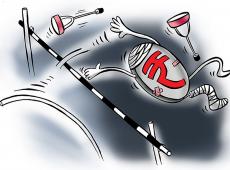
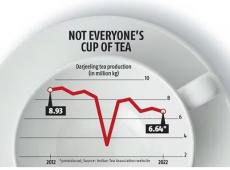
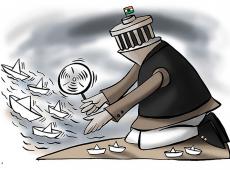
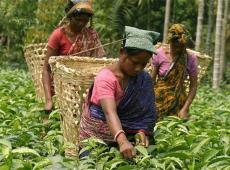
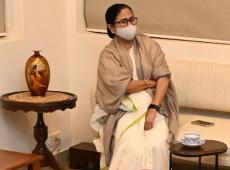
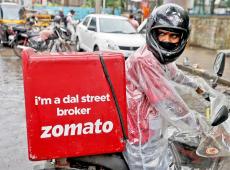
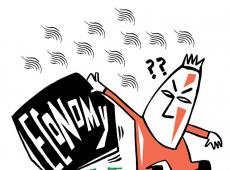

 © 2024 Rediff.com India Limited. All rights reserved.
© 2024 Rediff.com India Limited. All rights reserved.